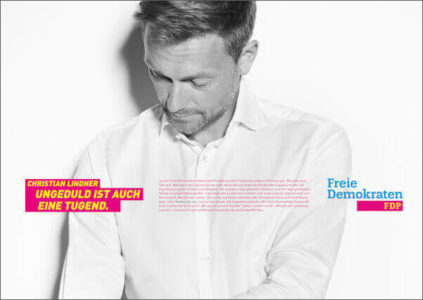Eat her cake and have it
Europe can’t wait for the German elections
By now, European politics have returned to the normal working schedule after the August holiday break. But only on paper, because whatever question comes to the agenda, the answer will be the same: let’s wait for the German elections. One might think that from Monday it will be an obsolete problem. But unfortunately not. Europe should brace itself for long coalition talks. Quite possibly Germany will not break Belgium’s record of 589 days without a government, given that the two countries have a completely different approach towards rules of a logical life. (Sorry, my Belgian friends.) But the Brussels-wide belief of getting business as usual by December might turn out to be wishful thinking. Some only expect to get things ready by February.
In a curious way, everyone takes Chancellor Angela Merkel’s fourth term for granted. It’s true that all other parties would need a miracle to do better than the CDU. But even if we think last year’s election surprises are long behind us, we shouldn’t be so self-assured. Yes, the CDU will quite possibly win the elections. But the ugliest part of the work just starts next week.

The impatient FDP-leader, Christian Lindner.
Not to mention the fact that German politics hasn’t been as obsessed with Europe, as the rest of the continent is with them. While committed Europeans cheered the campaign where lead candidates’ pro-European commitment was not a question at all, the European affairs have played a slightly marginal role in the campaign agendas. Yes, Merkel and her social democrat challenger Martin Schulz a bit threatened Poland and Hungary of reducing EU funds if they can’t behave. The first has expressed a careful and moderate support for realizing French President Emmanuel Macron’s plan for further integration, while the latter tried to criticize Merkel’s refugee policy just to say something genuine. FDP leader Christian Lindner refused the idea of further financial integration and made officials in Athens nervous again by questioning Greece’s place in the Eurozone. But basically, that’s all. However, everyone knows that once in government, they will have to say something to Europe.
If we rule out the scenario that AfD achieves a landslide victory, and trust the polls instead, the CDU will have to prepare for compromise. Rumors say they don’t want to have another grand coalition with the SPD because they are eager for a more distinctive center-right policy. On the other side, many say that the SPD can only survive and regain its unique profile if it goes to opposition for the next four years. Nevertheless, this uncertainty might turn out to be just a negotiation tactic, and the two big parties will be happy again to reunite their forces, so that they could go hand in hand to Paris to realize the big European dream.
But if the CDU will end up to be in a coalition with smaller parties, President Macron and all the other pro-European souls will find themselves in a difficult situation. Of course, I should be a fortune-teller to predict what will happen. But if I were about to bet, I would say Merkel and Lindner will end up in coalition, even if they try to be distant for the moment.

Source of the photo: Der Spiegel
The chancellor has always been the best player of two-level games, putting her hands up in the Bundestag saying that a certain decision represents the will of European Council. Or doing the same in front her European counterparts referring to the German parliament. In a coalition with the liberals, she could save her face while negotiating with Macron and escape from introducing European reforms that she has always been vary of, by simply arguing she needs to respect the will of the FDP and have a stable government back at home. This way, she could have her cake and eat it too. As the Chancellor has always loved to do so.
